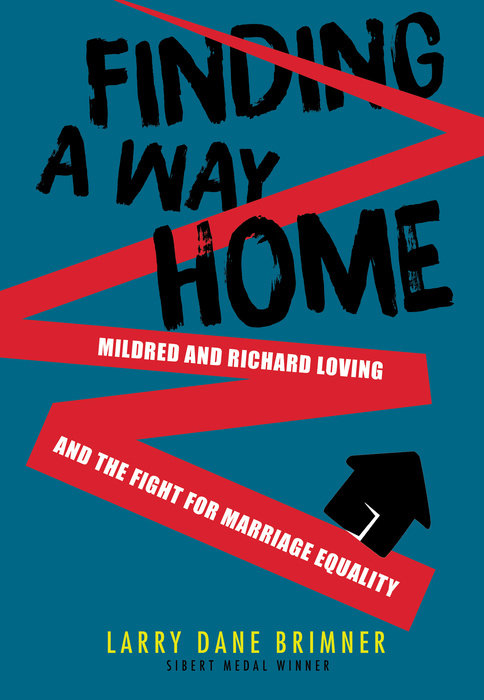
Finding a Way Home
Mildred and Richard Loving and the Fight for Marriage Equality
When Mildred and Richard Loving are arrested, jailed, and exiled from their home simply because of their mixed-race marriage, they must challenge the courts and the country in order to secure their civil rights.
Richard Perry Loving and Mildred Jeter Loving wanted to live out their married life near family in Virginia. However, the state refused to let them — because Richard was white and Mildred was black. After being arrested and charged with a crime, the Lovings were forced to leave their home — until they turned to the legal system. In one of the country's most prominent legal battles, Loving v. Virginia, the Lovings secured their future when the court struck down all state laws prohibiting mixed marriage. Acclaimed author Larry Dane Brimner's thorough research and detailed reconstruction of the Loving v. Virginia case memorializes the emotional journey towards marriage equality in this critical addition to his award-winning oeuvre of social justice titles.
Book Details
A Bank Street College of Education Best Book of the Year
A NCSS/CBC Notable Social Studies Trade Book
★ "Well researched and written as a clear, cohesive narrative, the book portrays the Lovings as a quiet couple who had grown up in a small, racially mixed community and simply wanted to be left alone. Quotes from the Lovings, their attorneys, and court proceedings are used judiciously, while large, well-captioned photos of people and documents bring the drama more sharply into focus. A concise, well-organized account of the landmark Loving v. Virginia case, its significance, and the people at the heart of the story." —Booklist, starred review
"An overview of the landmark 1967 case of Loving v. Virginia that legalized interracial marriage in the United States. Brimner presents the facts in no-nonsense prose while providing context for the couple’s plight: The history of segregation, the impact of the civil rights movement, and background on the judicial system are woven throughout. This thoroughly researched, attractively designed work is rich with primary sources, making history tangible. Brimner adds another strong text to his growing oeuvre of social justice–themed informational texts." —Kirkus Reviews
"[Larry Dane] Brimner discusses the [Loving v. Virgina] case and its legal intricacies as it made its years-long journey through the court system...then segues...to the impact Loving v. Virginia had on defending the right to non-heterosexual marriage, a separate but closely related battle that ultimately cited that precedent to secure marriage equality to couples regardless of gender." —The Bulletin of the Center for Children's Books
"Brimner provides an accessible, succinct introduction to the legal arguments and issues of Loving v. Virginia. Recommended for all middle and high school collections." —School Library Journal
"Richard Loving, a white man, and Mildred Jeter, a woman of African and Native ancestry, loved each other and wanted to get married. But that was against the law in Virginia in the 1960s. Brimner weaves together their personal stories...with the larger legacy of prejudice and bigotry in the Jim Crow South. The book is enhanced by black-and-white photographs throughout; candid shots of Richard and Mildred are particularly effective, characterizing the couple as an especially tender and affectionate one. A final chapter explains how this case set the stage for the marriage equality activism at the turn of the twenty-first century that enabled LGBTQ people to marry whom they wish." —The Horn Book
"This book reveals not only the details of the case involving the interracial marriage between Richard and Mildred but also all types of marriage equality regardless of race, sexuality, or gender. The precedent set by Loving v. Virginia continues to affect decisions made today regarding marriage equality." —School Library Connection

